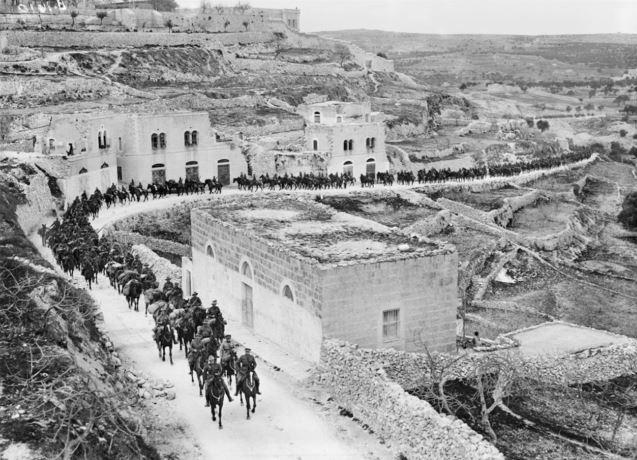Speeding up military acquisition a focus at Australia–Israel Be’er Sheva Dialogue
Posted By Anthony Bergin on November 30, 2022 @ 11:30

At its latest meeting, the Be’er Sheva Dialogue pursued a fresh path to advance security cooperation between Australia and Israel in the face of a worsening strategic outlook. The war in Ukraine and Chinese belligerence in our region cast shadows over the dialogue, held in Canberra last week.
The dialogue is the peak independent platform for security exchange between the two nations. It is named after [1] the Battle of Be’er Sheva (Beersheba in English), the victory over the Ottoman Turks led by British, Australian and New Zealand troops on 31 October 1917.
The dialogue has advanced ideas to intensify the security relationship between our two countries in the eight years since it was co-founded by ASPI. Now, in the face of growing threats, the dialogue is stressing the need for Australia and Israel to work even more closely in a range of areas, including defence. That means establishing military-to-military talks, military college exchanges, military medicine linkages and Israeli defence production in Australia. Other key areas for closer cooperation are cybersecurity, counterterrorism, critical technologies such as artificial intelligence, quantum computing and machine learning, and space with opportunities to develop small satellites and potentially to launch Israeli satellites from northern Australia. Israel is keen to learn from Australian approaches to natural disaster management and to share its own experience in managing mass-casualty incidents.
The dialogue was opened by Australia’s deputy prime minister and defence minister, Richard Marles. Israeli participants included Major General Eyal Zamir, the former deputy chief of staff of the Israel Defense Forces; Brigadier General Yossi Kuperwasser, who led the research and assessment division of Israeli military intelligence; Ehud Yaari, Middle East commentator for Israel’s Channel 12 television; Zohar Palti, former head of the policy and political-military bureau at Israel’s Ministry of Defence; and Mark Regev, head of the Abba Eban Institute and former prime ministerial adviser and international spokesperson.
Israeli participants discussed their country’s changing relationship with China, which has long sought access to Israel’s innovation sector. While Israel had earlier focused on seizing economic opportunities, the country was now taking concerns about China seriously and viewing relations more through a national security prism. Israel has, for example, largely excluded Chinese companies from multiple infrastructure projects.
On Ukraine, Australian delegates heard how Israel had reached practical understandings with the Russians to enable the Israeli military continued freedom of action against Iranian and other targets in Syria. There’s continued Western pressure on Israel [2] to provide Ukraine with air-defence systems against missiles and kamikaze drone attacks. While Israel has so far refrained from providing such assistance (although it has provided humanitarian aid), it was made clear that as a free liberal nation Israel isn’t neutral when it comes to superpower rivalry.
As laid out during the dialogue, there’s growing cooperation between three powerful autocracies: China, Russia and Iran (which continues to use proxies like Hezbollah and Hamas and has supplied drones to Russia). Along with North Korea, the meeting discussed how this rectangle of rogue nations requires cooperation between Australia and Israel to respond to a common challenge.
The dialogue noted that forces in modern conflicts needed the cutting edge provided by emerging technology and how that urgency has driven Israel to develop rapid processes for getting capabilities into the hands of its military.
Australian delegates suggested that because we could now be drawn into a military conflict with little warning, we could not afford our slow-food approach [3] to the enhancement of weapon systems required for high-end warfighting. We can learn from Israel’s experience in acquiring cutting-edge capabilities. It was suggested that Israel and Australia should establish a counter-drone taskforce.
Participants discussed Russia’s use of hybrid warfare and information warfare techniques in Ukraine. The war has been a hotbed of experimental tactics, doctrine and technologies, but many of Moscow’s efforts have proven less impressive than expected. Israel and Australia could share insights on successful information operations with our allies and partners.
In our near region, where we need all the friends we can get, the Pacific island states trust Israel. There’s a host of opportunities in the South Pacific for our two countries to focus on practical issues in which Israel has expertise: climate resilience, health, agriculture, water filtration systems and green energy. The islands look to Israel to support their 2050 strategy for the Blue Pacific continent. Israel has included marine technology as a top research priority [4]. An Israeli company has, for example, developed marine-friendly concrete [5] for use underwater, which is especially relevant to the islands.
In opening the dialogue, Marles said:
Australia looks to Israel as an example of a nation which has been a leader in defence strategic thinking—be it in regard to its defence industry capabilities (and the innovation system, economy and workforce built around that) or in regard to its deep cultural relationship with science and technology. As we look forward, we need to think about how we can continue to deepen our bilateral relationship, which also extends to the relationship between our militaries and defence industries.
After eight successful years of the Be’er Sheva Dialogue putting more meat on the bones of Australia’s security relationship with Israel, there’s much more to be done in working together in the heightened strategic circumstances both countries face. We need all hands to the pump.
Article printed from The Strategist: https://aspistrategist.ru
URL to article: /speeding-up-military-acquisition-a-focus-at-australia-israel-beer-sheva-dialogue/
URLs in this post:
[1] named after: https://ad-aspi.s3.ap-southeast-2.amazonaws.com/import/SR95_Australia-Israel.pdf?VersionId=35EZljqFa3Pz.fC_TYCwzlxA8GsPqgQW
[2] pressure on Israel: https://www.washingtoninstitute.org/policy-analysis/why-israel-hesitant-about-supplying-ukraine-air-defense-systems
[3] slow-food approach: https://www.slowfood.com/about-us/our-history/
[4] a top research priority: https://www.timesofisrael.com/israels-economy-is-setting-sail-into-the-deep-blue-tech-sea/
[5] developed marine-friendly concrete: https://econcretetech.com/
Click here to print.